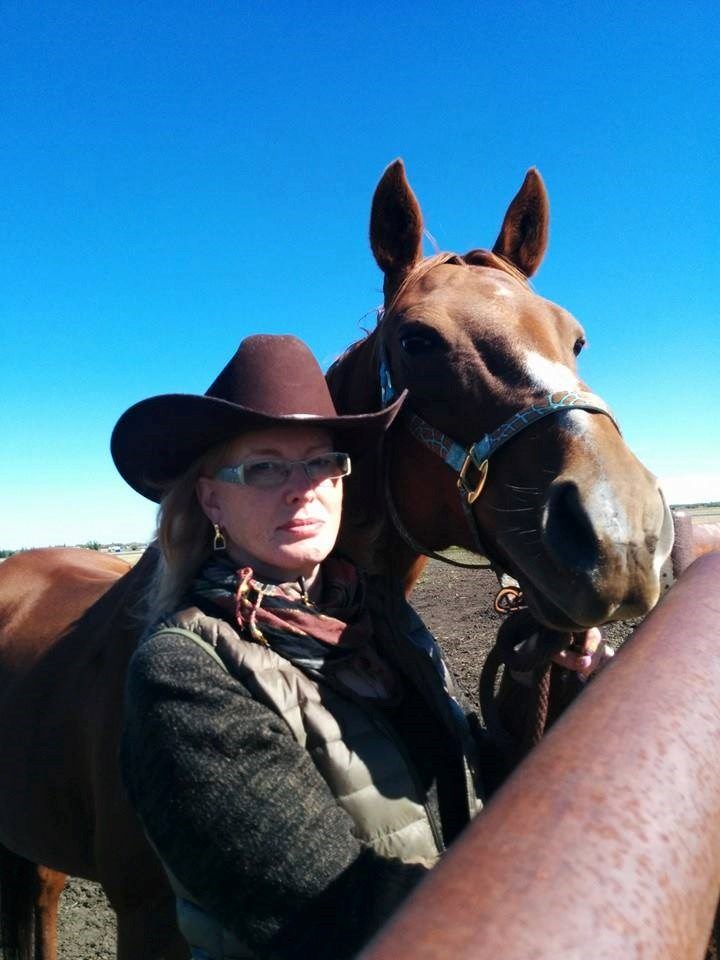A local teacher has emerged as a rare good news story involving displaced Ukrainians. As a result of volunteering to teach displaced kids, she has had her love of teaching restored.
Some teachers half-jokingly refer to the two biggest reasons they entered their chosen profession as July and August.
That's not the case for Susan Grant-Suttie, who decided on Canada Day to get involved with the Smart Osvita organization, and dedicate some of her summer holidays to teaching online courses out of her Cochrane home to displaced Ukrainian kids around the world.
Smart Osvita is a public Ukrainian organization that facilitates online workshops, trains teachers, and provides online education. One of their stated goals is the “development of psychological resilience of teachers and schoolchildren resettled from war-affected areas.”
Grant-Suttie is one of 60 Canadian teachers who is spending her summer teaching a minimum of three hours a week for this volunteer organization. Her enjoyment level for the teaching experience in general has increased dramatically, and it comes through in her descriptions of the conversations she has with her new students, who are in grades 3 to 7.
"The one question – and it doesn’t matter if they’re in Peru or Germany or Spain – that students ask teachers is, ‘How old are you?’” she said, laughing. “I always tell them I’m over a thousand years old and that’s why I can teach Canadian history.”
Grant-Suttie is impressed with how eager the students are to learn Canadian history, as they struggle to learn English at the same time.
Smart Osvita provides teachers with some things to be aware of when dealing with kids in this situation. They are cautioned, for example, about language that may trigger unintended reactions.
“We’re advised to avoid conversation of war and killing and death, and even to watch our idioms,” she said.
Grant-Suttie points out that the teachers aren’t trained psychologists, and it also wouldn’t be fair to have one or two students out of 15 or 20 pouring their hearts out while the others didn’t. So instead of starting classes off with ‘How are you?’ she starts with ‘I’m so glad to see you.’
“These are children, and it would be hard for them to go down that emotional path,” she said, adding another tool to help deal with latent emotions is to keep the kids focused.
“We keep the children in the moment. Right now they are safe, right now they are adored. Right now they are learning,” she said. “So they know that right now there are people outside Ukraine who care deeply for them.”
Some of the questions hint at perhaps deeper issues the kids are going through. One of the kids in Ukraine, who was aware of where Cochrane is on the map, caught her off guard one day by asking how quiet it is it here.
“That gave me pause. I’m sure that particular child, I could tell, was from the countryside, and they’d been moving around, and the sound is very different for them,” she said.”
“It was very noisy with war. But where I was, and they’re listening, it’s very quiet.”
Grant-Suttie said one of her favourite fun moments was when a student in Ukraine was particularly jittery and unruly one day.
“Sometimes in a class you’ve got someone who wants a little more attention, or a kid spinning in their seat, and the teacher has to manage that,” she said.
She had one such Grade 3 kid challenge her classroom management skills.
“Oh my gosh, she was a jumping bean, she made the screen look like a kaleidoscope, she was moving so much,” she said.
The girl's Ukrainian grandmother suddenly burst onto the screen, picked her up and sat her down in a way that left a clear message.
“When her grandmother did that, I sat up straight,” Grant-Suttie laughed.
“Baba said you sit still in class. We’d love more babas in the classroom."
During the school year, Grant-Suttie teaches English, Art, and Social Studies at Almadina Language Charter Academy in Calgary.
She said teachers across North America have been leaving the profession for a number of reasons, including burn-out as a result of pandemic-related issues. She admits to having had some of those feelings herself prior to this summer. But this volunteer experience has changed all that.
“Children coming back have to be re-acclimatized to the school system again, and we’re exhausted, we’re tired,” she said.
“I’m so pleased because this has re-ignited my love for teaching. This is the heart of teaching."
It doesn’t hurt that this type of teaching is paperwork-free, and there’s no one looking over your shoulder. And the kids are so eager to learn. She added she now looks forward to bringing that heart back to her classroom in the fall.
“That has revitalized me,” she said.




